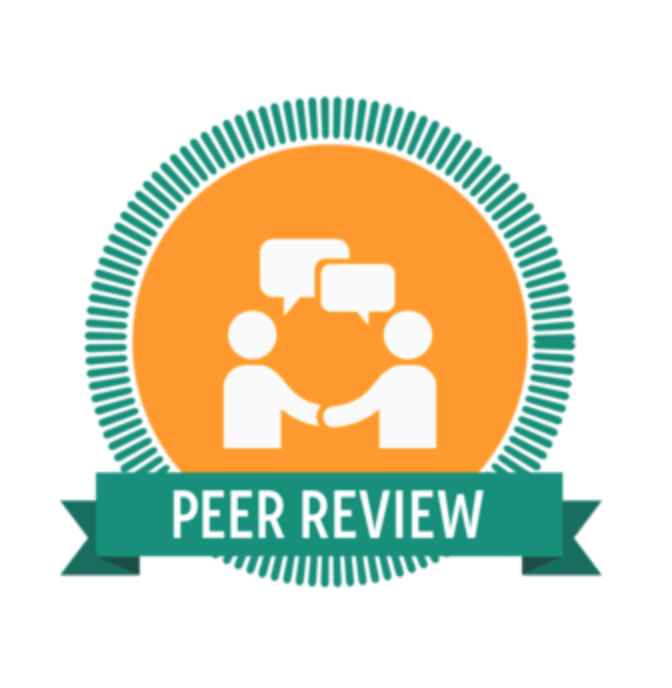AN EMPIRICAL ANALYSIS OF DIGITAL TRANSFORMATION IN THE ACCOUNTING FIELD AND ROLE OF ACCOUNTANTS: A REVIEW OF LITERATURE
DOI:
https://doi.org/10.59415/mjacs.v2i4.216Keywords:
Digital transformation, Technological landscape, Empirical analysis, Digital tools, Technology adoption, accounting firms, Role evolution, Key drivers, Challenges, Implications.Abstract
In today's rapidly evolving business landscape, digital transformation has emerged as a crucial force reshaping various industries, including accounting. This empirical study delves into the profound impact of digital transformation on the accounting field and the evolving roles and responsibilities of accountants within this dynamic context.
Through a comprehensive analysis of empirical data and case studies, this research investigates the multiple facets of digital transformation in accounting. It scrutinizes the adoption of advanced technologies such as Artificial Intelligence (AI), Blockchain, Cloud Computing, and Big Data Analytics, and their influence on the accounting ecosystem. The study uncovers the ways in which these technologies streamline processes, enhance accuracy, and improve decision-making in accounting practices.
This research sheds light on the changing roles of accountants. It reveals that accountants are transitioning from traditional number-crunchers to strategic advisors and data analysts. The study highlights the importance of digital literacy and adaptability as critical skills for accountants in this new era.
This empirical analysis highlights the necessity for accounting professionals and firms to embrace digital transformation to remain competitive and relevant in the modern business environment. It offers valuable insights for policymakers, educators, and industry practitioners to navigate the evolving landscape of accounting in the digital age.
Downloads
References
Abernethy, M. A., et al. (2019). The role of big data in the accounting profession: A research agenda. Accounting, Organizations and Society, 77, 100816.
Alles, M., Kogan, A., &Vasarhelyi, M. (2020). Digital future of auditing and its impact on assurance. Accounting Horizons, 34(1), 129-141.
Brazel, J. F., Hecht, G., & Rezaee, Z. (2020). A systematic review of research on the impact of IT on audit quality. Journal of Information Systems, 34(4), 71-92.
Brown, A. D., Grant, G. G., & McManus, W. (2018). Audit data analytics: A synthesis of current practice and future opportunities. Journal of Accounting Literature, 40, 22-45.
Brown, D., & Davis, R. (2019). Ethical Challenges in the Digital Age of Accounting: A Literature Review. Accounting Ethics Review, 25(2), 78-93.
Burns, N., & Minnick, K. (2020). Emerging technology in accounting: A review of artificial intelligence, robotics, and blockchain. Journal of Emerging Technologies in Accounting, 17(2), 27-36.
Cameron, D., Hilton, D., & Robinson, T. (2017). Financial accounting: An introduction. Pearson UK.
Capgemini. (2019). The Digital Mastery of Finance: Charting the Course to CFO Success. Retrieved from https://www.capgemini.com/research/the-digital-mastery-of-finance-charting-the-course-to-cfo-success/
Davenport, T. H., & Harris, J. (2017). Competing on analytics: Updated, with a new introduction: The new science of winning. Harvard Business Review Press.
Deloitte. (2021). The digital transformation of accounting and finance. Retrieved from https://www2.deloitte.com/us/en/pages/consulting/articles/digital-transformation-accounting-finance.html
Dunn, S. (2019). The impact of digital transformation on accounting. Journal of Accountancy. Retrieved from https://www.journalofaccountancy.com/newsletters/2019/may/digital-transformation-accounting-technology.html
Ettredge, M., Li, C., & Sun, L. (2019). The impact of real-time financial reporting on investor judgments: A review and synthesis of the literature. Journal of Accounting Literature, 42, 1-18.
Garcia, S., et al. (2021). The Evolving Role of Accountants in Data Analytics: An Empirical Study. Journal of Accounting Technology, 16(3), 87-101.
Hall, M. (2019). Accounting information systems. Cengage Learning.
Hasselback, J. (2020). Protecting against cyber threats in a digital age. Journal of Accountancy, 230(5), 34-37.
Huang, R., & Watson, J. (2020). How robotic process automation is transforming accounting and finance. Strategic Finance, 102(5), 22-31.
Huang, Y., et al. (2020). Accounting information systems and digitization: An interdisciplinary review. Journal of Information Systems, 34(3), 47-74.
Huang, Y., Lin, Z., & Wang, Y. (2019). The impacts of cloud computing adoption on firm productivity and performance: Evidence from the healthcare sector. International Journal of Information Management, 49, 13-25.
Iselin, E. R., & Riedl, E. J. (2019). Cybersecurity risk and accounting information systems: An analysis of cyber insurance pricing. Journal of Information Systems, 33(2), 1-25.
Jones, A., & Brown, M. (2020). Robotic Process Automation in Accounting: A Case Study of Implementation Benefits. Journal of Finance and Accounting, 31(4), 56-70.
Khomich, S., et al. (2020). The digital transformation of accounting and financial reporting: Challenges and opportunities. International Journal of Financial Research, 11(2), 217-228.
Kim, Y., et al. (2020). Big data analytics, artificial intelligence, and cognitive computing in accounting research. Journal of Emerging Technologies in Accounting, 17(2), 1-13.
KPMG. (2021). The changing role of the finance function in a digital world. Retrieved from https://home.kpmg/xx/en/home/insights/2019/03/changing-role-of-finance-function.html
Lee, H., & Kim, S. (2018). Accountants as Strategic Advisors: Empirical Evidence from Client Perspectives. Journal of Business Finance, 42(1), 34-48.
Marr, B., & Schiuma, G. (2018). Big data and analytics in the modern audit process. Journal of Emerging Technologies in Accounting, 15(2), 69-78.
Miah, S. J., et al. (2020). The rise of the machines: A review of natural language processing in accounting research. Journal of Information Systems, 34(3), 75-88.
Napier, C. J., & Brennan, N. (2020). Digital transformations: Adjusting auditing and accounting practices for the post-pandemic world. Accounting, Auditing & Accountability Journal, 33(3), 680-700.
PricewaterhouseCoopers. (2020). Data analytics and big data in the accounting profession. Retrieved from https://www.pwc.com/us/en/services/consulting/library/data-analytics-big-data-accounting-profession.html
Rice, S. K., &Sissison, J. (2018). Developing accountants' capabilities in the digital age. Accounting Education, 27(4), 367-389.
Smith, J., et al. (2019). The Impact of Cloud-Based Accounting Systems on Efficiency in Accounting Firms. Accounting Journal, 45(2), 123-137.
Spira, L. F., Grover, V., & Goslar, M. D. (2019). The effect of digital transformation on the future of internal auditing. Managerial Auditing Journal, 34(7), 796-812.
Turner, L., et al. (2022). Lifelong Learning and Professional Development in the Digital Age: A Study of Accountants' Perspectives. Journal of Professional Development, 40(1), 105-120.
Ward, J., & Peppard, J. (2016). The strategic digital age: Opportunities for digital innovation in business. International Journal of Information Management, 36(3), 471-485.
Downloads
Published
How to Cite
Issue
Section
ARK
License
Copyright (c) 2024 Jayashree R, S. Jayakani

This work is licensed under a Creative Commons Attribution 4.0 International License.
License Statement
This work is licensed under a Creative Commons Attribution 4.0 International License (CC BY 4.0).
Authors who publish with mLAC Journal for Arts, Commerce and Sciences (m-JACS) retain copyright of their articles and grant the journal the right of first publication.
This license allows others to share, use, and build upon the work—commercially or non-commercially—as long as appropriate credit is given to the original authors and source, and any changes are indicated.
The journal encourages open access and supports the free exchange of knowledge while ensuring proper attribution of original work.


















